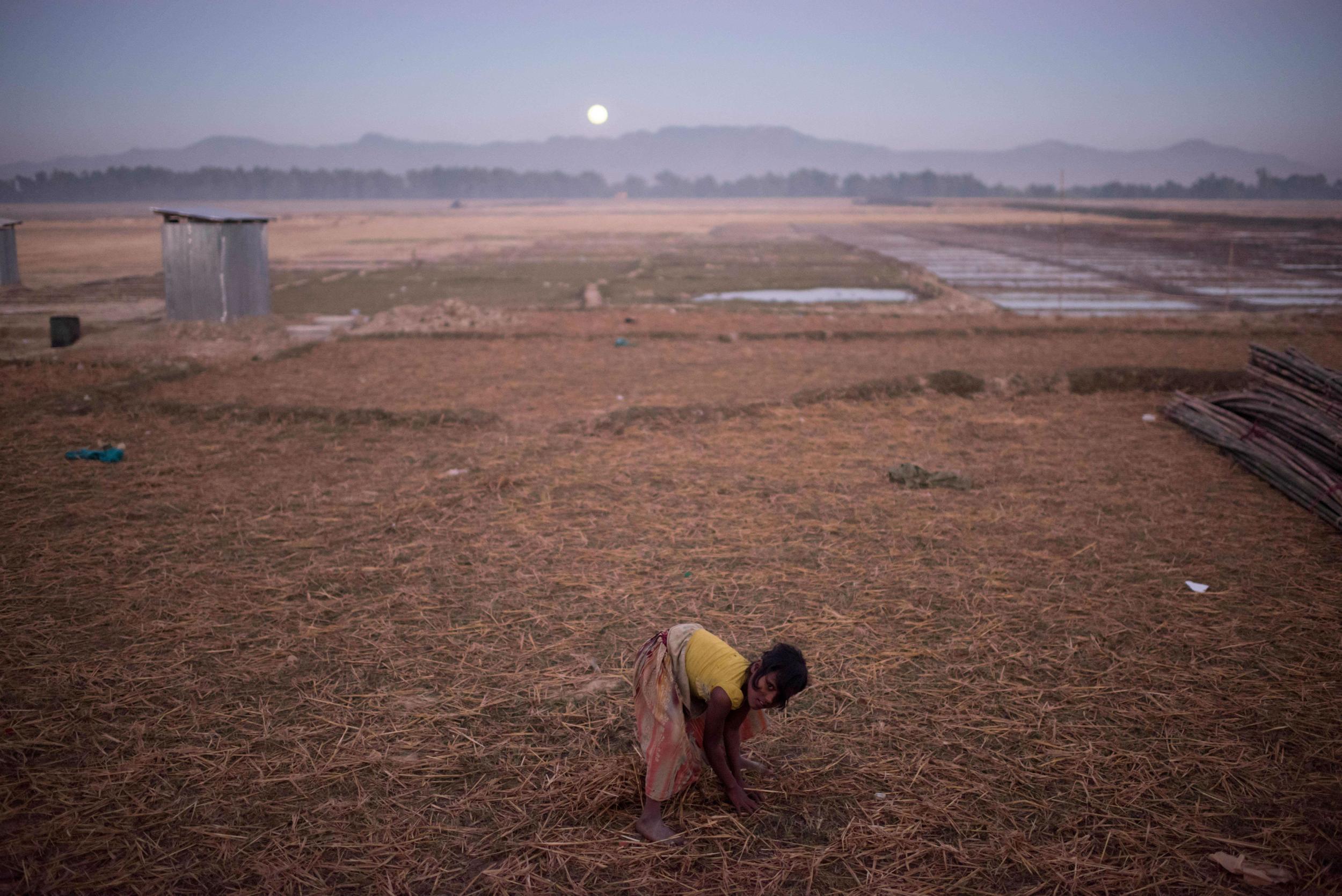Rohingya crisis: US target Burma general accused of leading atrocities in major new sanctions
The sanctions were imposed under the Global Magnitsky Act

Your support helps us to tell the story
From reproductive rights to climate change to Big Tech, The Independent is on the ground when the story is developing. Whether it's investigating the financials of Elon Musk's pro-Trump PAC or producing our latest documentary, 'The A Word', which shines a light on the American women fighting for reproductive rights, we know how important it is to parse out the facts from the messaging.
At such a critical moment in US history, we need reporters on the ground. Your donation allows us to keep sending journalists to speak to both sides of the story.
The Independent is trusted by Americans across the entire political spectrum. And unlike many other quality news outlets, we choose not to lock Americans out of our reporting and analysis with paywalls. We believe quality journalism should be available to everyone, paid for by those who can afford it.
Your support makes all the difference.The US has sanctioned a Burmese general accused of leading a murderous campaign of ethnic cleansing that has driven more than 600,000 members of a Muslim minority from the country.
The US Treasury Department announced that Maung Maung Soe, who oversaw the military operation in the northwest Rakhine state, was among 52 individuals and entities who were being sanctioned for alleged alleged human rights violations and corruption.
It said it had “examined credible evidence of Maung Maung Soe’s activities, including allegations against Burmese security forces of extrajudicial killings, sexual violence and arbitrary arrest as well as the widespread burning of villages”.
Among other individuals hit by sanctions were Benjamin Bol Mel, who has served as an adviser to South Sudan President Salva Kiir, former Gambian leader Yahya Jammeh, the daughter of Uzbekistan’s late dictator and the son of Russia’s prosecutor general.
Experts say the situation in Burma has become incredibly difficult. The UN estimates that up to 650,000 Rohingya are now living in emergency camps inside of Bangladesh.
While the two countries have held talks about returning them to Burma, there is reluctance among Burmese officials to do so and concerns among the international community as to whether their safety could be guaranteed if they do return.
This week, it was revealed that Burma had refused a visa to Yanghee Lee, the UN special rapporteur, who was scheduled to visit in January and prepare a report on human rights issues across the country.
After the authorities in Naypyidaw announced they would not cooperate with her visit, Ms Lee called on the international community to exert more pressure on the Burmese government, whose de facto civilian leader is Aung Sang Suu Kyi.
“From what I see right now I’m not sure if they are feeling pressured. I’m not sure if there is the right kind of pressure placed on the military commanders and the generals,” she told Reuters.
Mark Farmaner, director of the Burma Campaign UK, told The Independent the human rights crisis in the country was unprecedented.
“We have never had such a serious human rights crisis in Burma nor such a weak international response. Personally, after 20 years at Burma Campaign UK, I have never felt the future of Burma to be a bleak as it is now,” he said.
“Aung San Suu Kyi banning the Special Rapporteur from the country is just the latest is a series of steps she has taken to cover up human rights violations against the Rohingya. No-one anticipated that Aung San Suu Kyi would have such a total disregard for human rights.”
Ms Suu Kyi, a Nobel laureate, has been widely criticised for not speaking out against the abuses targeting the Rohingya. Critics believe the former political prisoner does not want to upset potential voters in the Buddhist-majority country now she is a politician.
Others have said the country’s constitution means that even though the country is in the process of transitioning towards democracy, the military still retains control of key ministries, including defence and foreign affairs.
General Soe was last month transferred from his post, but the country’s Ministry of Defence gave no reason for the move.
“Today’s announcement of sanctions demonstrates the United States will continue to pursue tangible and significant consequences for those who commit serious human rights abuse and engage in corruption,” US Secretary of State Rex Tillerson said in a statement.
The sanctions are the first imposed under a US law called the Global Magnitsky Human Rights Accountability Act, which was enacted last year.
The action freezes any assets the sanctioned individuals and entities may hold under US jurisdiction and blocks Americans from dealing with them.
Join our commenting forum
Join thought-provoking conversations, follow other Independent readers and see their replies
Comments